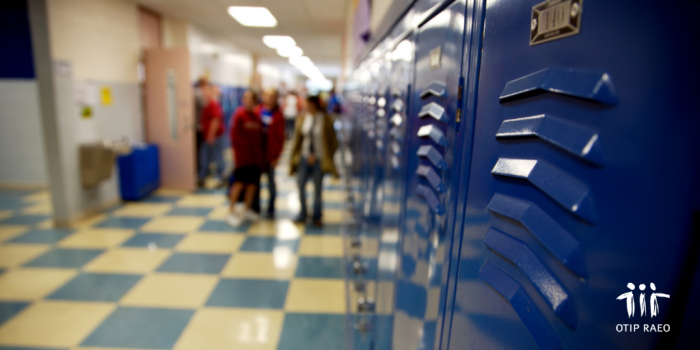December 31, 2021
VIA EMAIL: doug.fordco@pc.ola.org
The Honorable Doug Ford
Premier of Ontario
Room 281
Legislative Building, Queen’s Park
Toronto, ON M7A 1A1
Dear Premier Ford,
On December 16, to protect our schools, communities, and families, we wrote you requesting the implementation of a number of measures to stem the surge of the highly infectious Omicron variant. We acknowledged that the measures suggested would require considerable political will, but urged their consideration so that in-person learning, and the considerable benefits it brings to students, could continue in January.
Yesterday, Ontario’s families learned once again that your government still refuses to implement the preventative measures called for by education and public health experts. Given the importance of in-person learning, we share the Ontario Science Table’s view that school closings “should be part of a pandemic control strategy in only the most catastrophic circumstances.”
Ontario’s students cannot afford a repeat of last January, with more school closures and learning disruptions.
We urge you to act immediately and implement the following measures to address COVID-19 in schools, so that students can safely enjoy the benefits of in-person learning:
• reduce class sizes to promote physical distancing;
• increase effective vaccination rates in our school communities by publicly promoting the importance of vaccination for students;
• prioritize access to booster shots for all education workers;
• add COVID-19 to the list of designated diseases in Ontario Regulation 261/13 Designated Diseases under the Immunization of School Pupils Act (ISPA);
• improve ventilation and install HEPA filters in ALL classrooms and public spaces in schools and campuses, with publicly available air quality metrics and standards;
• ensure the non-fit-tested N95 mask orders by school boards are filled and delivered immediately;
• provide the best possible masks to all students, with improved guidelines to ensure masking compliance;
• implement stricter screening and isolation requirements;
• implement a more robust testing and contact tracing regime, which includes providing all education staff with regular access to Rapid Antigen Tests, and prioritizing PCR test accessibility for both education workers and Ontario’s students should they register a positive result on their rapid tests; and
• reconsider the short-sighted decision to decrease the isolation period from 10 to five days, as doing so unnecessarily risks reintroducing the virus into school settings.
In addition to these school-specific measures, to reduce the risk of sick Ontarians from infecting their colleagues at work, we ask that you improve the temporary paid sick leave program, as the three days of limited benefits this program provides will be insufficient to prevent workplace outbreaks. We also ask that you ensure all workplaces, especially larger ones, have easy access to testing capacity to ensure employees are tested if they have any symptoms.
As we have previously communicated, we believe current circumstances require additional community-based infection prevention and control measures, as recommended by the Ontario Science Table, including more effective reduced-capacity rules, enforcement of vaccine passports, and masking in all indoor spaces.
These measures are now more necessary than ever for safe schools and sustainable in-class learning. As we have stated many times throughout this pandemic, we urge you to contact us to discuss how we can assist in the implementation of these measures.
Yours truly,
Karen Brown, President
Elementary Teachers’ Federation of Ontario
Barb Dobrowolski, President
Ontario English Catholic Teachers’ Association
Karen Littlewood, President
Ontario Secondary School Teachers’ Federation
Mike Morgan, Chair
Ontario Council of Educational Workers
Warren (Smokey) Thomas, President
Ontario Public Service Employees Union
Anne Vinet-Roy, présidente
Association des enseignantes et des enseignants franco-ontariens
Laura Walton, President
Ontario School Board Council of Unions – CUPE
cc :
VIA EMAIL: christine.elliott@pc.ola.org
The Honorable Christine Elliott
Minister of Health
5th Floor, 777 Bay St.
Toronto, ON M7A 2J3
VIA EMAIL: stephen.lecce@pc.ola.org
The Honorable Stephen Lecce
Minister of Education
5th Floor, 438 University Ave.
Toronto, ON M5G 2K8















